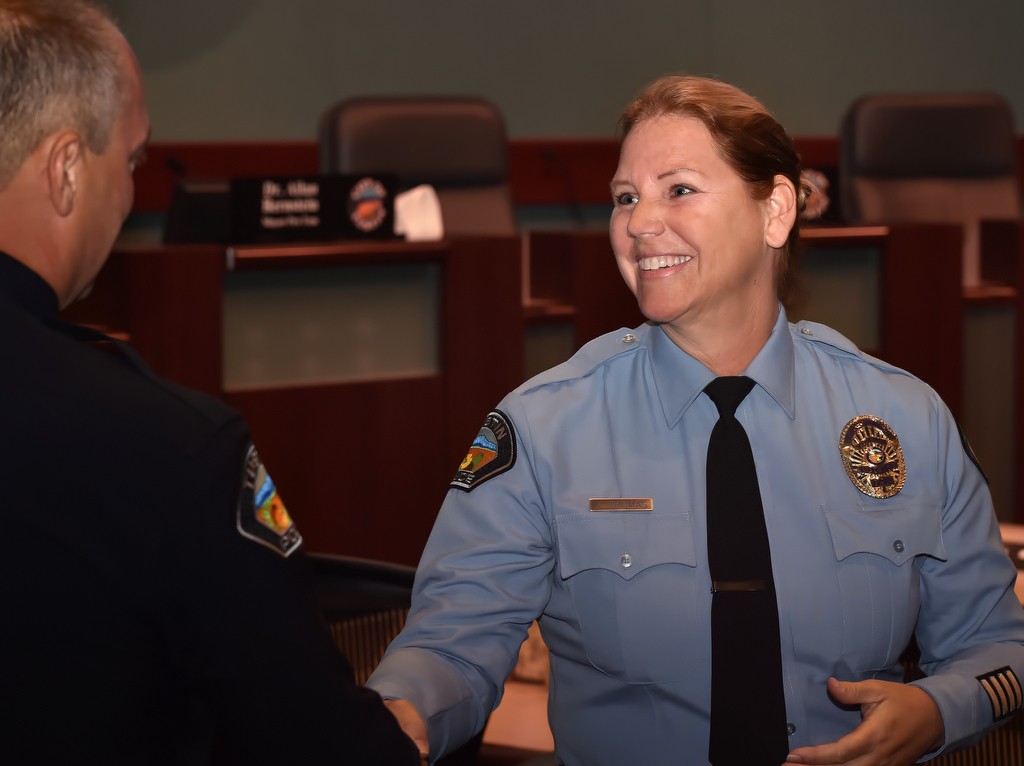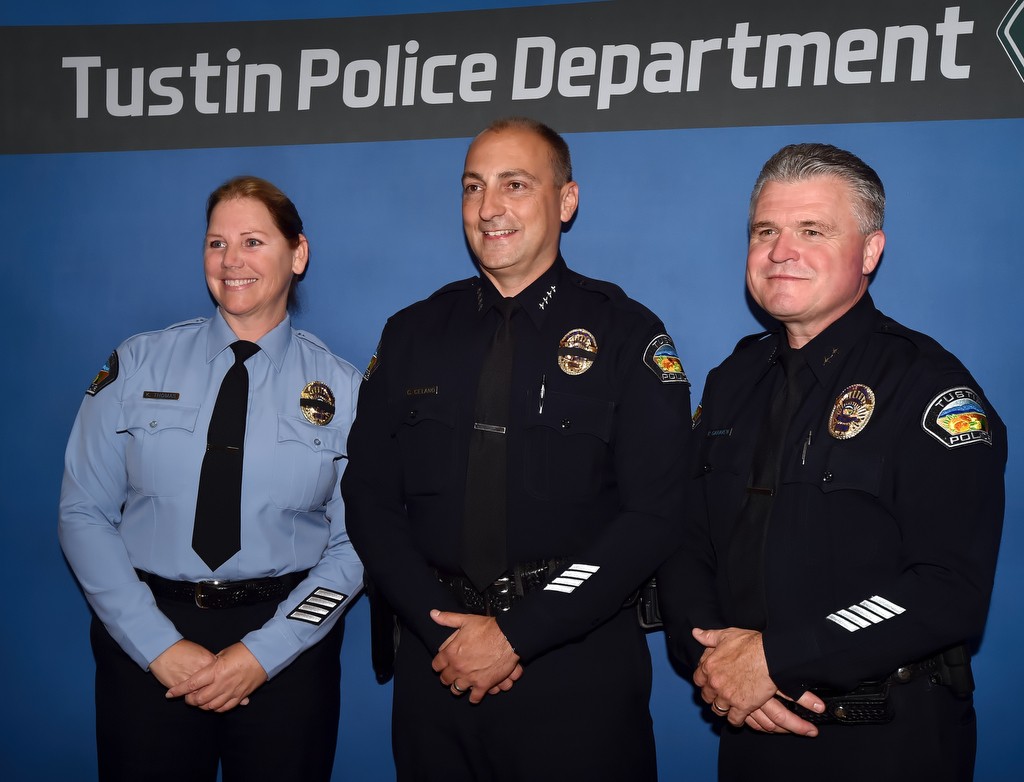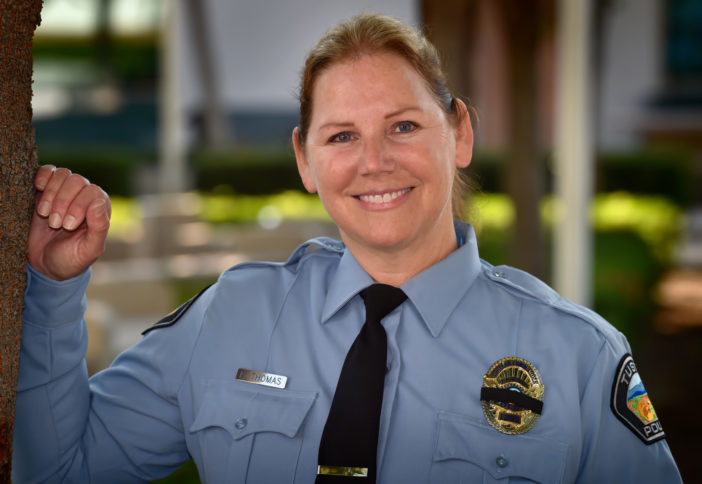Civilian Commander Katarina Thomas looks at her original four police badges encased in a glass plaque – commemorating her 21 years as an LAPD officer, detective, sergeant, and lieutenant – with pride. With an equal amount of pride she pulls out her Tustin PD civilian uniform and badge.
“I’m just as proud,” she said of her Tustin PD badge.
Thomas, who retired from the LAPD on July 9, 2016, began her new job as TPD civilian commander on July 11, 2016.
“I’m still doing police work, just on a different side of it,” she said.
As civilian commander, Thomas is responsible for overseeing the 53 civilian employees at the agency, including Police Services officers, records, property and evidence, and dispatch.
“All absolutely vital members of the department,” she said. “They don’t get the glory like the sworn [officers]do … but the sworn [officers]I think realize they can’t function without them.”

Tustin Civilian Commander Katarina Thomas is greeted by Tustin Police Chief Charles Celano during a promotions and swearing in ceremony.
File Photo by Steven Georges/Behind the Badge OC
Coming from the sworn side, Thomas understands how important the civilian staff at an agency is – if an officer needs to access evidence for a court case, for instance, he or she must check it out with the property and evidence department. But her time serving as civilian commander has opened her eyes even more.
“I don’t think I ever really knew how much was involved and the daily work that [they]do,” she said, adding that there’s a great deal of multitasking involved in dispatching calls for service. “They have to keep those great records and documentation.”
For instance, at the TPD, the Police Services officers take nearly half of non-arrest reports. And property and evidence specialists are in charge of 50,000 pieces of evidence and must keep track of what goes to courts, the lab, etc.
Civilian staff members free up sworn officers for police work involving emergency-related calls.
“It makes such a difference in how you’re deploying your personnel,” she said. “Having civilians assist in many patrol responsibilities allows our police officers to spend more time being proactive in the field and [handling]emergency calls.”

Tustin Civilian Police Commander Katarina Thomas with Police Chief Charles Celano, center, and Deputy Chief Paul Garaven at the conclusion of a Tustin PD swearing in ceremony.
File Photo by Steven Georges/Behind the Badge OC
The position of civilian commander at a police agency could be a growing trend as departments use more civilian staff, Thomas said.
“There’s a command position that civilians can aspire to,” she said, adding that civilian commanders tend to stay in the position longer and develop their expertise. “I think that’s a wonderful thing for them.”
As she moves forward to develop new ways the civilian team can be integrated into 21st century policing techniques, she will be working on several projects. One is encouraging team building among the civilian supervisors and managers to encourage an open line of communication between sworn and civilian staff.
“I also want to increase civilian staffing and ensure they have the most updated and best equipment available for them,” she said.
Another project is her new board membership with Second Chance Orange County, which helps recovering addicts learn workplace skills. With a doctorate in clinical psychology and as a licensed marriage family therapist, she hopes this new opportunity can help her and the agency find new ways to encourage positive change in the community, especially in dealing with homeless issues.
“It’s kind of tying my two careers together,” she said.
When not at work, Thomas spends time with her two English springer spaniels, Lexi and Linus. She loves the close-knit family of the TPD and the strong community connection in the city as a whole.
“It just has that close, small-town community feel,” she said.
 Behind the Badge
Behind the Badge



